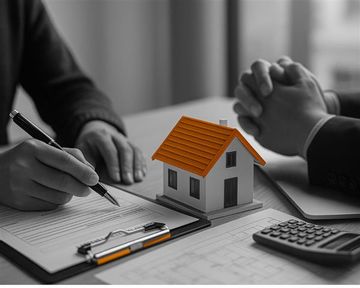Cost Considerations for Building a Residential Property: Insights from Professional Quantity Surveyors
The answer to the question of whether it is ‘cheaper’ to buy or build a residential property is "it depends”.
“Taking on a residential property building project is a serious undertaking, but one that can be very rewarding. Our best advice is to consult a quantity surveyor to help you plan and manage the cost of building,” says Jan le Roux, CEO of the Leapfrog Property Group.
Professional quantity surveyor Guillaume Cillié, managing director at CAQS Quantity Surveyors in Cape Town, says there are various factors that determine the cost of building a residential property. He sheds light on some of the most pertinent considerations.
What are the main factors that determine building costs?
Floor area is typically the main cost factor in a residential building because as the floor area increases, so do all other costs. For example, building a 200m² property is going to require less labour and materials than a 800m² property, just by virtue of the fact that it is smaller.
The size, layout and geology of the site where the residential property will be built also plays a role in the cost. “Naturally size influences price but layout too can affect costs if, for instance, the site has to be excavated before building can commence,” Cillié points out.
Factors such as the height between the floor and ceiling, the type of roof, and finishes are also all variable costs. Cost savings is usually possible on the finishes, as these are often up to personal preference.
Does location affect building costs?
Unsurprisingly, location is a key factor affecting building costs. “Location can have an impact on the structural and waterproofing requirements of the building, and thus the cost. A building at the coast, for example, will require thicker roof sheeting than a building that’s 50 km inland,” Cillié explains.
How is the final cost per square metre determined?
The equation is the sum of the contractor’s overhead costs (site supervision, fuel, transport, equipment) plus building costs (materials, labour, wastage and profit) plus professional fees. Added to that is VAT at 15%. Finally the sum is divided by the construction area to arrive at the answer.
What are some of the questions people looking to build a residential property should ask of their quantity surveyor?
- How can we reduce the cost: The goal should always be to get the most value for money. “There is nothing wrong with asking your quantity surveyor where and how you can best optimise your building budget,” Cillie believes.
- How long is this project going to take: Time is money on a building project so make sure you have clarity on how long your residential building project is going to take so that the various parties can be held accountable and expectations managed.
- How do I choose a contractor: Your quantity surveyor is likely to have a database of trusted contractors that they work with on a regular basis.
- What is the expected cash flow: The quantity surveyor is usually responsible for paying the construction company, which means they are in charge of cash flow. Cillié explains: “Make sure you know how the project will be paid for. It’s usually monthly, though in some cases it might be 30% upfront, 30% at halfway and the balance upon completion. Make sure you’re clear on how the cash flow will be managed.”
- How are the costs of the quantity surveyor calculated and what does it include: The quantity surveyor is also a service provider and should not have a problem disclosing how their fees are calculated.
- What kind of building contract is put in place: Insist that your quantity surveyor explains the in’s and out’s of the contract if necessary.
How and where can one save on a residential building project?
“Opt for brickwork, rather than concrete elements if possible. Concrete is more durable but in terms of structural integrity brickwork is just as suitable for a residential property,” Cillié advises.
Reducing the height between the floor and ceiling is also likely to make a noteworthy difference to the cost. Significant savings can also be had on the finishes, including flooring, joinery, sanitary ware and even paint.
“Choose locally manufactured products and materials wherever possible, it’s the best way to sidestep the effect of the exchange rate and to boost the local economy,” Cillié believes.
What are some of the unexpected costs that always come to plague a project?
One of the reasons one opts to employ a quantity surveyor on a residential building project is to ensure that unexpected costs don’t crop up. “The quantity surveyor’s role is to determine and manage the budget as tightly as possible, to offer maximum value and minimum cost, so that there are no surprises when it comes to costs,” Cillié concludes.

